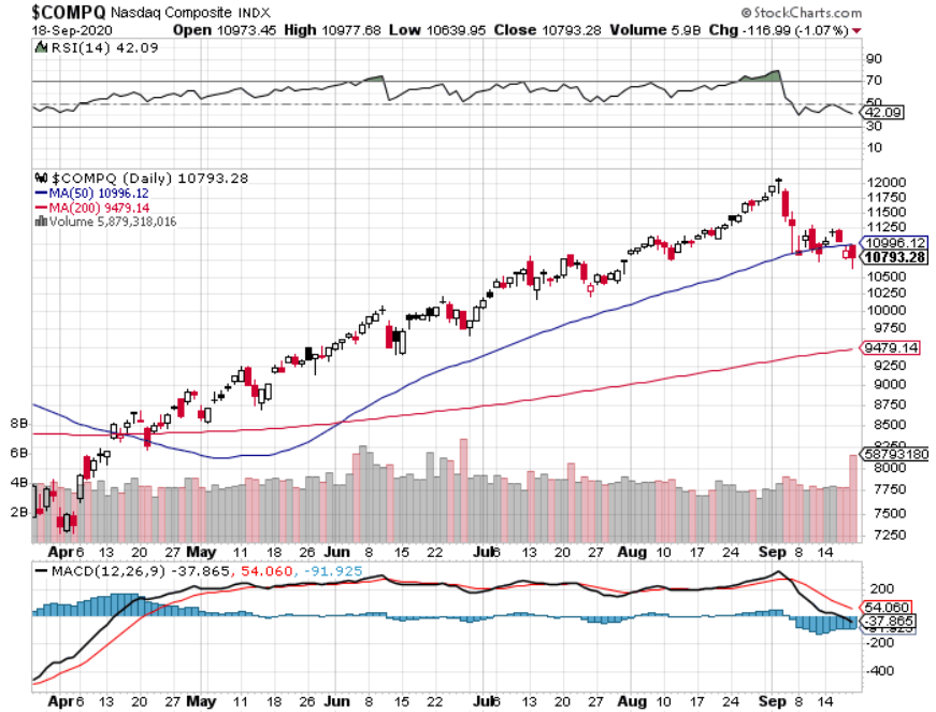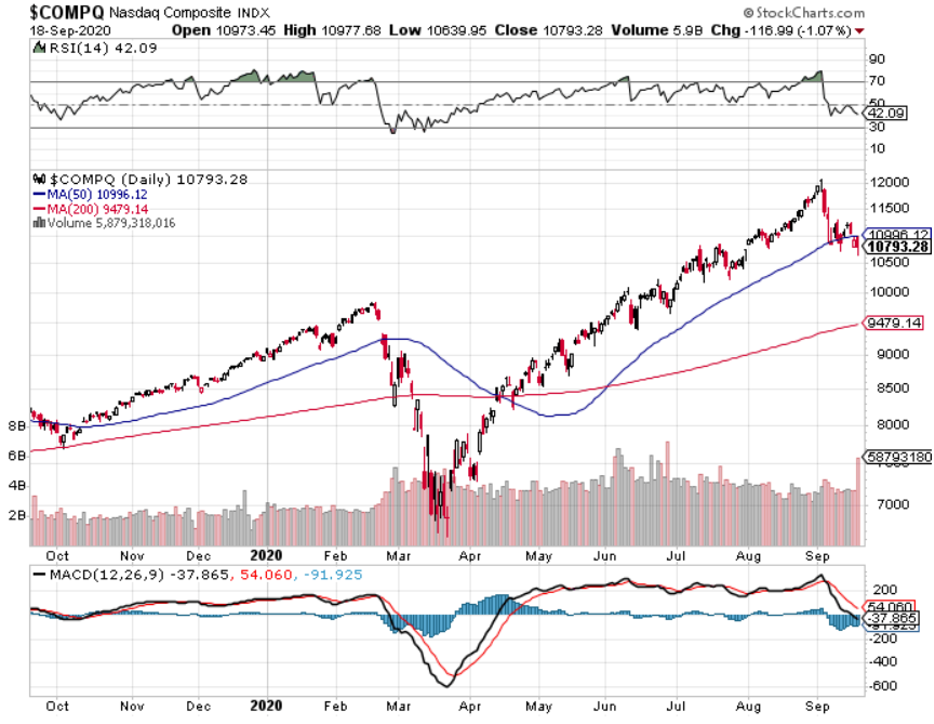What's Next for the Tech Market
The tech market appears to be stalling out confronting uncertainty on a host of fronts, but investors betting on one theme—the unfolding economic recovery—appear positive.
What is certainly uncertain is that elections, brazen geopolitics, healthcare bills, inflation, forbearance, natural disasters are piling up like a dirty laundry basket of heightened risk.
Cyclical outperformance has been the catchphrase since the start of September, and the establishment on Wall Street has been barking for a rotation in market leadership from mega-cap tech.
As much as I love the business models of Apple, Google, Amazon, Microsoft, and Netflix, they have come too far — too fast.
We are currently smack dab in an economic phase where growth stocks won’t perform like they did when the broader economy was humming along just before March and the shelter-at-home trade has faded away from its initial boost.
There are knock-on effects and big tech doesn’t just live in a silo which is why investors are searching for reasons to take tech higher.
That being said, big tech did harvest the lions’ share of the gains from March until the end of August and in relative terms, they have emerged the ultimate winners during this health crisis.
Many upper-middle-class families are beginning to feel the economic pinch as well, as the damage is starting to be felt further up the economic food chain.
But these families will still need their tech software and services when they do a cost-benefit analysis and items such as car loans, entertainment, and food delivery will be more likely on the cutting block.
The overextended S&P 500 technology sector has lost 8% in September, while value-oriented materials and industrials have added 6% and 2%, respectively. The overall S&P 500 has declined 4%.
The valuation of the market is arguing for a rotation, not a continued leg up.
In the short term, tech stocks could lose out to U.S. small-caps and specifically small companies with high returns on equity, or ROE.
Low-ROE and nonearning stocks have dominated the Russell 2000’s rebound since late March, as investors focused on revenue growth above all else. That has benefited a lot of software, biotech, and other stocks, but forced investors to pay a high premium.
When the economy is in free fall, many companies have negative sales growth, and the market will favor those who aren’t overvalued.
By my estimation, tech is overvalued in the short-term but still a great long term bet.
Now that the fiscal morphine shot is wearing off, tech appears to be resting while it consolidates while waiting for an “event” to give it more juice.
Some fiscal tools just don’t work now like share buybacks. Management would be tone-deaf to the economic carnage going on in the U.S. — not to mention that tech stocks just visited all-time highs.
The Federal Reserve now sees 4% gross domestic product growth in the U.S. next year, followed by 3% in 2022.
This small-cap rotation will come and go, and once tech gets a little cheaper, the dip will be bought.
As the retracement goes from 20 days to one month, some positive news comes in the form of Walmart and Oracle acquiring parts of TikTok even in a highly diluted form.
Fortunately, the tech portfolio has been in 100% cash as I sensed the consolidation in time.
We will search for better entry points and will need to be patient.



